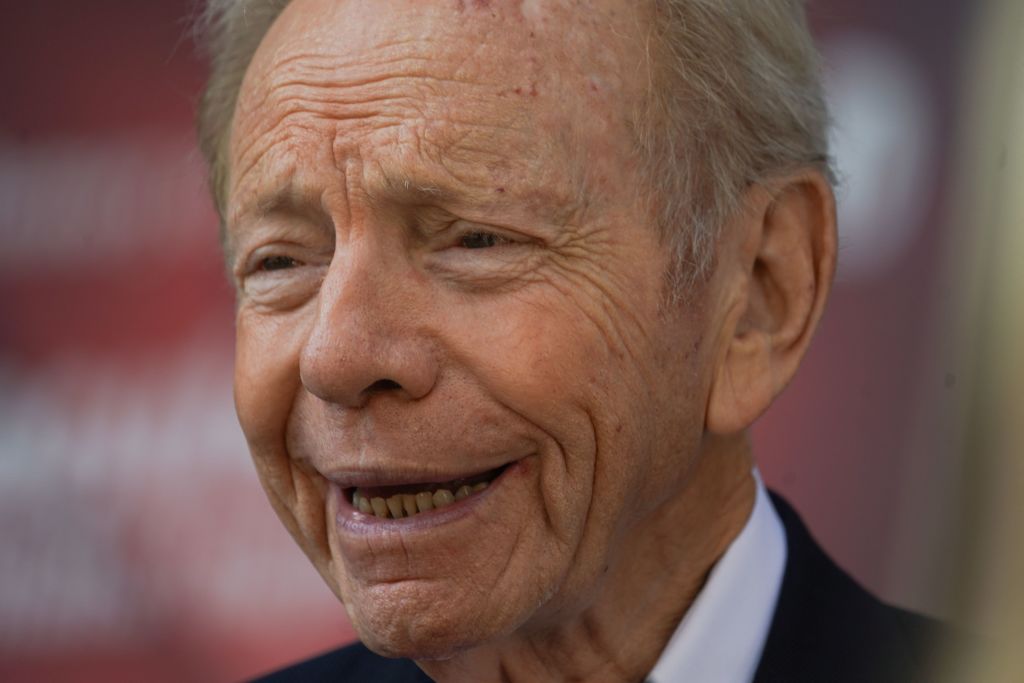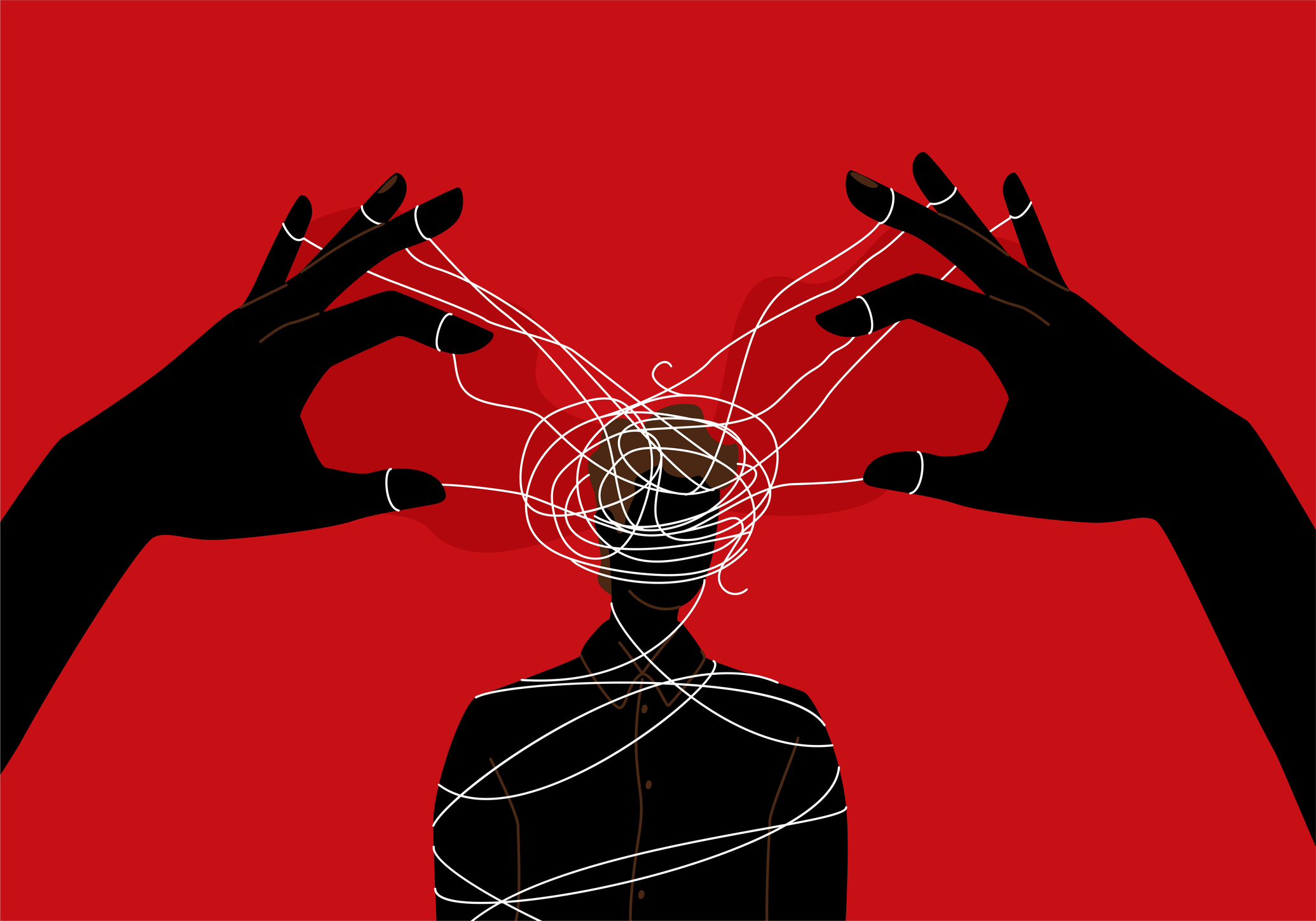Conservatives are attacking America by weaponizing our favorite things.
We Must All Hang Together

There is no room for quietism in our contentious politics.
Sorry if you just want to live your life in peace and quiet. You can’t. The political issues are unavoidable.
“What’s happening to our country?” “Is it possible to change directions, and if so, how?” “What does all this mean for me and my family?” “What are my obligations, as a citizen and a human being?”
These are difficult questions. It’s easy to feel overwhelmed, and hard to know where to begin. Having good and sensible friends to talk to can help a lot. But even people who are very close can have serious disagreements. Divided loyalties split families in the Revolutionary War and again in the Civil War, even to some degree in the Cold War.
Some of the questions we need to confront are practical matters, others theoretical. Right away, then, we have to consider not just what to think about, but how to reflect on these matters. This essay is intended to offer a few reflections on both practical and theoretical dilemmas, and how we might tackle them.
I don’t have any simple, direct solutions to our current crisis. In fact, one point of this essay is to show that no one can tell you what to think, or do, about our present situation. I hope to offer some lessons from history and philosophy that can be helpful. I particularly want to make the case for greater intellectual and moral humility among friends who share the same political principles. Friends should be able to agree on the end or goal even when they disagree about the means. Whether we who consider ourselves friends do in fact agree about the ends is a point I’ll return to below.
The classical philosophers taught that different qualities, or virtues, are needed for different investigations. Practical questions (about action or conduct) require moral virtue, while theoretical matters (about abstract knowledge) demand intellectual virtue. This means they require different approaches. Let’s consider practical problems first.
Part I: Moral Freedom Versus the Progressive Delusion
For those of us on the Right the political situation today resembles a wagon train heading to the frontier. Through some bad luck and bad choices it finds itself caught on the edge of a steep ravine. The wagons have become badly damaged and stuck. There is no good way forward, but it seems impossible to turn around. Some suggest the only option—risky but necessary—is to abandon the wagons and set out on foot. Others think that is madness and would rather stay put and see what happens. Those who would leave think they are simply being realistic and see the others, the clingers, as timid and somewhat delusional. Those who would remain insist that events could still alter their fortunes. To strike off into the wild, they think, is not just rash but a kind of betrayal. Everyone started out with the same noble purpose—to build a life of freedom, security, and opportunity. But in the current predicament each side is now tempted to question the other’s motives or principles, to see them as not just wrong but somehow immoral.
The best solution to a practical problem like that one is not obvious; reasonable people can disagree. The political parallel is crude, but I mainly want to make the point that sometimes there are no easy answers.
More importantly, a fictitious example like that—though useful in some ways—doesn’t really involve practical or moral deliberation, which always depends on the specific facts of the case. Practical problems, strictly speaking, are never abstract because the question you are trying to answer is what to do, here and now. That is why practical wisdom doesn’t require formal education. More useful are life experience, knowing how the world works, and having some hands-on responsibility in business or public affairs. These are the elements that contribute to prudence. This misunderstood attribute was considered by Aristotle to be the moral virtue par excellence, the essence of statesmanship. Prudence—sound practical judgement—combines knowledge of goals or ends (what is good or desirable in itself) with knowledge of means (how to reach that goal under these particular circumstances).
Prudence is harder today than it once was because of the delusions of progressivism. This dogma holds that history moves with a fixed direction and purpose. To the degree that moral choice exists at all, it is held to be subordinate to the historical forces that determine man’s fate. In one sense, this attitude is not surprising. With the aid of modern technology and databases full of historical research, it easy to fall into the error of 20-20 hindsight. This leads us to think that our superior vantage point makes us more enlightened than our ancestors.
The Allies won World War II. Soviet communism was defeated. The Roman empire fell and was replaced by centuries of feudalism. We assume that these events happened because they had to happen. We perceive, in retrospect, a confluence of economic trends, technological developments, and geostrategic imperatives that we think reveal the gears and springs of human affairs. But it’s a mistake to assume that the patterns we can perceive after the fact inevitably caused everything that happened. Even the most unstoppable events are shaped by chance and choice. Our belief in historical “inevitability” makes it harder to exercise prudence in our own time. This matters if the progressive doctrine is wrong and moral deliberation can in fact shape the course of politics. In that case, the cultivation of prudence would be a duty every citizen owes to his political community as well as to himself.
In this frame of mind, turn to a famous passage in the Declaration of Independence.
… Governments long established should not be changed for light and transient causes; and accordingly all experience hath shewn, that mankind are more disposed to suffer, while evils are sufferable, than to right themselves by abolishing the forms to which they are accustomed. But when a long train of abuses and usurpations, pursuing invariably the same Object evinces a design to reduce them under absolute Despotism, it is their right, it is their duty, to throw off such Government, and to provide new Guards for their future security.
In the wordy prose of the eighteenth century that’s only two sentences. The first reduces to hold on; the second, break off and try something new. Both entail hazards. Cling or forsake? How were the colonists supposed to decide? The Declaration, as we know, expresses the determination of the second Continental Congress. The delegates backed their resolution by an appeal to the Supreme Judge of the World as well as their own sacred honor. We tend to forget, however, the protracted, intense, and elaborate quality of their deliberations. Many ordinary citizens were also perplexed and conflicted through the turbulence of the 1760s and 1770s.
Peter van Schaak was a prominent New York attorney and ambivalent Loyalist, who saw compelling arguments on both sides. The crux for him as for others was not whether the rights of the Americans were being violated—most everyone in the colonies saw Britain’s heavy-handedness as excessive—but what to do, and when to do it (whatever it might be). His journal entries in January 1776 are instructive, as when Schaak acknowledges that social compact theory is the basis of all legitimate government and then adds, “No question can therefore exist, at this enlightened day, about the lawfulness of resistance, in cases of gross and palpable infractions on the part of the governing power.” From there, however, things get trickier.
He ventures that there are “few questions relating to government” more challenging than the situation “at present subsisting between Great Britain and the Colonies.” Earlier, the dispute had merely concerned the “degree of subordination” owed to the Parliament. But “by a rapid progress” this had evolved into the existential question of whether Americans and British were still part of the same regime, whether “we are members of the empire or not.” The answer would seem be either yes or no. Yet this was a nettle the cautious lawyer did not wish to grasp, and he expresses a wish made since time immemorial by those confronting a quandary: “Some middle way should be found” (note the passive voice) that could secure “the benefits of empire” while at the same time curbing “the abuses of that power.”
Can’t we all just get along?
In retrospect, Schaak’s inability to pick a side resembles a man who doesn’t want to be on a ship but doesn’t want to jump off: “absolute dependence and independence are two extremes which I would avoid.” It is hard to see a mean between these “extremes.” But perhaps we should not be too hard on Schaak. He was struggling honestly with his conscience in the face of complicated and rapidly changing events. Importantly, he was neither unprincipled nor ignorant of the profound questions of political philosophy at issue. And he admired those who had taken their stand for independence. “But this is too serious a matter, implicitly to yield to the authority of any characters, however respectable. Every man must exercise his own reason and judge for himself.” In the end, caution won out, and the New Yorker found himself unable to take part “in measures which, through the distress and bloodshed of his fellow-creatures, may precipitate his country into ruin.”
A more interesting and more poignant case concerns John Dickinson. Though largely forgotten today, he was among the most famous men in the colonies before the Revolution. Dickinson wrote the hugely influential “Letters from a Farmer in Pennsylvania” (1767-68), vigorously defending American liberties against their usurpation by the British king and parliament, and co-authored with Thomas Jefferson the “Declaration of the Causes and Necessity for Taking Up Arms” (1775). And yet, as a member of the Continental Congress in July of 1776, knowing this his reputation would be forever tarnished by this decision, he voted against the Declaration of Independence.
Historian Jack Rakove speculates that perhaps,
his Quaker upbringing left him with a strong conscience that prevented him from endorsing the decision that others now found inevitable. Perhaps his youthful memories of England still swayed him. In either case, conscience and political judgment led him to resist independence at the final moment, and to surrender the celebrity and influence he had enjoyed over the past decade.
It’s a useful exercise to set aside our knowledge of how the Revolution turned out, and consider with an open mind Dickinson’s arguments on about the dangers of overturning the political order through open rebellion. “I know the name of liberty is dear to each one of us,” he declared in his July 1 speech, “but have we not enjoyed liberty even under the English monarchy?” Compared to most of the world, the Americans still retained a considerable degree of freedom. Colonial Pennsylvania was not Stalinist (or even czarist) Russia. “Everyone sees the necessity of opposing the extraordinary pretensions of the ministers,” he observed, “but does everybody see also that of fighting for independence?”
A wealthy landowner and astute political observer, Dickinson reminded the delegates that foreign powers would be watching, eager to take advantage of the situation. Economic and military strength was necessary for the respect “which is so essential to the prosperity of our commerce, to the enjoyment of any consideration, and to the accomplishment of any enterprise.” Independence would mean that “everything will assume a contrary direction. The nations will accustom themselves to look upon us with disdain….”
He points out that even complete unanimity among the Americans would only be half the equation. England would not give up her colonies simply because they had asserted a “separate and equal station.” Declaring a revolution is one thing; backing it up is something else. Only “an uninterrupted succession of victories and triumphs” would convince” their oppressors “to acknowledge American independence.” The likelihood of success, depending on so many unknown factors, was doubtful, as anyone who “knows the instability of fortune can easily judge.”
Another more uncomfortable suggestion made by Dickinson reminds us that the habits of self-government are demanding and hard to acquire (or regain). The American people in 1776 were used to living under a king. Is it certain that this authority, however onerous, could safely be removed? Separation, he feared, would plunge America into “licentious anarchy and popular tyranny.” When “the counterpoise of monarchy shall no longer exist, the democratic power may carry all before it and involve the whole state in confusion and ruin.”
Despite his strong feelings, Dickinson considered himself a patriot. On the day of the vote, July 2, he and two other dissenters abstained so that Congress could present a united face. Then, the decision having been made, Dickinson immediately acquiesced in this deliberate expression of the people’s will and went off to fight with the Continental Army.
Though the architects of the Declaration had vehemently opposed Dickinson’s arguments, his integrity earned the admiration of his countrymen after time had cooled their tempers. Rakove writes that “upon hearing of Dickinson’s death in February 1808, Thomas Jefferson, for one, penned a glowing tribute: ‘A more estimable man, or truer patriot, could not have left us.’” Nevertheless, Dickinson’s name faded into obscurity—as he himself suspected it would. (For a marvelous appreciation of Dickinson, and the fame he forfeited for his excessive caution, listen to these two episodes of Chris Flannery’s “American Story” podcast.)
To round out this analysis, consider one more historical figure, Winston Churchill, whose temperament could hardly be more opposite to the Pennsylvania farmer and the New York lawyer.
Where Schaak and Dickinson were guided by circumspection (in the former’s case, almost to the point of intellectual paralysis), Churchill’s whole life was marked by an exuberant embrace of danger. This quality nearly cost him his life more than once, did cost him money and political advancement on many occasions, and generated incalculable worry and exasperation for his friends and family. Churchill’s apparently heedless attitude, trusting to fate, would seem to follow the progressive edict: Live for the moment and let history take care of itself. Indeed, Churchill appears to affirm this very thought:
It is not given to human beings, happily for them, for otherwise life would be intolerable, to foresee or predict to any large extent the unfolding course of events. In one phase men seem to have been right, in another they seem to have been wrong. Then again, a few years later, when the perspective of time has lengthened, all stands in a different setting. There is a new proportion. There is another scale of values. History with its flickering lamp stumbles along the trail of the past, trying to reconstruct its scenes, to revive its echoes, and kindle with pale gleams the passion of former days. What is the worth of all this?
What he is suggesting, however, is not resignation or indifference, but rather a degree of humility in the face of our limited knowledge and control over events. These words occur in a eulogy to Neville Chamberlain, in which Churchill is “paying a tribute of respect and of regard to an eminent man who has been taken from us.” No one listening to or reading these passages delivered in 1940, however, could forget that only a few months earlier Churchill had thunderously denounced Chamberlain’s appeasement of Nazi aggression. Churchill pairs his magnanimous remarks with a reminder that it “fell to Neville Chamberlain in one of the supreme crises of the world to be contradicted by events, to be disappointed in his hopes, and to be deceived and cheated by a wicked man.”
That we cannot guarantee success is a reflection of man’s limited power over a world he did not make. But we can deserve success, as Churchill often noted. The future may be obscure, but we usually know what honor requires. Sir Winston desired honor and fame perhaps as much as any man who ever lived, yet he agreed with John Dickinson that even the pursuit of glory is subordinate to the ethical demands of prudence:
The only guide to a man is his conscience; the only shield to his memory is the rectitude and sincerity of his actions. It is very imprudent to walk through life without this shield, because we are so often mocked by the failure of our hopes and the upsetting of our calculations; but with this shield, however the fates may play, we march always in the ranks of honour.
In “Consistency in Politics,” a wonderful essay that every republican citizen should read, Churchill writes, “The only way a man can remain consistent amid changing circumstances is to change with them while preserving the same dominating purpose.” To have a consistent dominating purpose is have an end, a telos as the Greeks called it, toward which the means—the actions possible here and now—are directed. This brings us back to the classical understanding of prudence. After reading the Nicomachean Ethics rather late in life, Churchill is reported to have said that he already knew everything in the book, meaning that it conforms to the lived experience of a morally serious man—even, or especially, one who has held great political office.
The title of my essay is taken from a famous remark by Benjamin Franklin in 1776. “We must all hang together,” he observed, “or we shall most assuredly hang separately.” John Dickinson knew that, which is why after risking ignominy to uphold his conscience he immediately (with the same clear conscience) joined the fight for the Patriot cause. His later services to his state and country (including as a delegate to the Constitutional Convention) redeemed his reputation to a degree. Yet no one really recalls him now, or ranks him among the founding fathers. Peter Van Schaak refused to pledge his loyalty to the American cause and departed for England in 1778, ostensibly for medical treatment, where he remained for the duration of the war. But he decided he didn’t like England either, and returned to the United States in 1784. It took a special act of the New York Assembly to restore his citizenship. We don’t know how Neville Chamberlain might have reacted to Churchill’s conduct of the war, or the revelations about the Nazi concentration camps; he died before he could publicly revise his judgments (assuming he would be inclined to do so).
History has disposed of these men harshly, with either anonymity or infamy. That’s how it goes. Aristotle says that errors in moral deliberation are understandable but not commendable. His discussion of prudence is subtle and challenging, in part because the virtue itself is a bit hard to pin down. A morally serious man should always know what good end he is aiming for—justice, or moderation, or happiness, for example. But the soundest way to achieve that end is not always clear. The prudence required by the great-souled statesman, who operates on a vastly greater field, can appear unattainable to the many. But even for republican citizens exercising self-government, the challenge can be daunting. Events, choices, necessities, accidents, wise and foolish judgments—these become clear only in hindsight, and sometimes not even then. So serious and responsible people do the best they can, based on personal experience, the study of history, an understanding of human nature, and a respect for both the authenticity of moral freedom and the limits of human action.
How our present political crisis will unfold is not within the power of any person now living to know. It can’t hurt, though, to return once again to the wisdom of Aristotle, who held friendship to be among the greatest of all human blessings, in part because friends encourage one another to excellent and “noble” actions. As he observed in the Ethics, “We take others as fellow deliberators for large issues, not trusting that we ourselves are adequate to decide them.”
Part II: The “Proposition Nation”—True but Not Sufficient
Unfortunately, these challenges of practical wisdom are just part of our difficulties.
I now have to take back (partly) something I said above. It’s true that practical wisdom and theoretical wisdom are different. The former is concerned with what to do in a concrete situation, while theory is about general knowledge regarding universals, what is always true. Moral wisdom, which guides action, is not abstract. And yet, as I mentioned above, prudence combines knowledge of ends and means. In order to know what to do, you have to know where you want to go or what you want to achieve. What good are we aiming toward? Moreover, the specific knowledge required regarding “the facts” sometimes does include theoretical considerations. At the very least, it means not being confused by theoretical errors.
I want to address one persistent but important error that is commonly made by different factions on the Right, and then touch on a deeper and more subtle point.
In a podcast sponsored by the James Madison Program at Princeton, Nino Scalia and Jeffrey Sikkenga had an interesting conversation about ideas and education in politics, and discussed the notion of America as a “proposition nation.” They cited my American Mind essay as an example of that position, because I argued that many people living in this country, to the degree that they reject our founding principles of consent and equal natural rights, can’t really be considered Americans. Scalia and Sikkenga (who agreed with my argument) made clear that America cannot be understood only in terms of an abstract idea. That’s an important point I have also emphasized—especially since Claremont scholars are so often misunderstood on this matter.
The reason the “proposition nation” argument is true but not sufficient is because every political community, or regime, is a combination of form and matter, each of which is necessary. The form is the ruling principle or idea that legitimates the government: What is it that makes this regime good and worthy of loyalty? For the classical philosophers, the ruling principles included virtue or excellence to justify aristocracy, wealth for oligarchies, and equality for democracy—to list only the most common. Any of these ideas or principles has to be embodied in a particular territory and people with specific habits, history, and culture. These latter elements are the matter. You need both to have an actual political community. Aristotle believed, however, that the form was more important because it determined the end or telos of the regime: What does the community see as its purpose or aspiration, what do people look up to and what way of life do they consider most choiceworthy? This element of telos is important because it is the same concept at work in the ends or goals of practical deliberation, discussed above. “If we could first know where we are, and whither we are tending,” Lincoln said, “we could better judge what to do, and how to do it.”
The distinction between political form and matter will be clearer if we put it in the ordinary American terms of creed versus culture. Again, both are necessary, as Claremont scholars have been arguing for a long time. To take just one example, Bradley Watson published an underappreciated essay in The Intercollegiate Review in 2006, explaining how the American creed
reveals itself in the context of a particular history and culture. Indeed, if we grant that natural rights principles are universal, this by no means implies that they can be implemented universally, or even recognized by all…. The American founders thought and acted with great originality and boldness, and they had broad sympathy for the nascent principles of liberty. But had America not been settled largely by Englishmen, or at least those familiar with the English conception of liberty, it would, without question, have been a very different country. American understandings and institutions simply would not have taken the shape they did had not the founders been profoundly influenced by the constitutional history, political philosophy, and common law doctrines that came from England.
In the 1970s and 1980s, when American conservatism was still finding its footing, and wasn’t quite clear what it wanted to conserve, Harry Jaffa (the Claremont Institute’s intellectual founder) argued forcefully for the creedal importance of the Declaration of Independence. He was right to do so; and he largely succeeded in pushing American conservatism toward a greater emphasis on the founding’s permanent truths grounded in nature. I personally believe that without this work done by Jaffa and the Claremont Institute, the Left would never have found it necessary to attack and delegitimize the founding through efforts like the “1619 Project.” But that New York Times propaganda campaign itself reveals how much the political landscape has changed, which in turn raises the question of whether we need to reevaluate our successes and failures. When political circumstances change, rhetoric and strategy have to change too.
Fifty years ago, American conservatism needed a healthy battle of ideas. But today, the theoretical clash over the meaning of America often doesn’t engage or goes over the head of ordinary citizens—who are exhausted, cynical, and suspicious of endless political warfare. The universities and the intellectual class are even more corrupted now than when Jaffa was making these arguments decades ago—which raises the question of how much is to be gained by repeating the same arguments for another 50 years. The healthiest parts of the country today are those that are farthest removed from the corrosive influence of academic sophistry: people without college degrees, residents of rural states and counties, small entrepreneurs, and—interestingly—Gen Z rebels who are disgusted by the phoniness of the establishment clown world. Tactically, I agree that our cooperative energies right now must be devoted to blocking the “antiracist” programs and punishments the Left clearly yearns to impose on us. Despite all this, however, we will at some point need to make some decisions and settle some disagreements among ourselves. Ultimately, we can’t ignore the broader philosophical questions because there are direct political consequences from theoretical confusion.
The proper place of “the proposition” often gets misunderstood in two ways. Some traditionalists, overly skeptical of abstract reasoning, focus too much on culture to the neglect of the creed. On the other side, some academic political philosophers, especially “Eastern” Straussians, focus on nothing but theory. Both miss something important.
Many academic and apolitical Straussians are useless in the current political crisis, even though they sense with alarm that the regressive Left—in its anti-intellectual rage against free inquiry and serious scholarship—may soon come for them. But they are too timid or lethargic to act, having spent their careers looking down on actual political life and sneering at Claremont’s “unphilosophic” activism. This is partly a matter of temperament, but there’s also, ironically, an intellectual error at work here. Some disregard the importance of culture and tradition (the matter) because they imbue philosophic ideas with an almost mystic power. They see only the formal or theoretical aspect of the regime—and a distorted version at that. Allan Bloom, probably the most famous of the Eastern Straussians, wrote in his 1987 The Closing of the American Mind, “What was acted out in the American and French Revolutions had been thought out beforehand in the writings of Locke and Rousseau, the scenarists for the drama of modern politics.” Citizens and statesmen, from this strange point of view, are merely following a script written years or decades earlier by a philosophic puppet-master.
The traditionalists and paleoconservatives, by contrast, are genuine patriots and probably the most reliable allies in the fight against woke tyranny. But they love America mainly, or only, because it is “our” country and embodies our traditions. That’s fine under most circumstances. But what happens when traditions change? The Left has controlled some key institutions, particularly the universities, for a century at least. Decades of bad Supreme Court decisions are now part of “our tradition.” And the woke now command not only academia and popular culture, but increasingly corporate America (and are on a path to seizing the military next). “Our country” is increasingly “theirs.” Without any recourse to objective morality and the permanent standard of nature, the paleoconservatives’ struggle against identity politics is nothing but a passionate battle of wills. The traditionalist’s theoretical error is to think that theory doesn’t matter.
These questions—about “our” country, who is included in “we the people,” and who is regarded by our ruling class as illegitimate—raise another matter which is a bit more subtle, but may help us think more clearly about our dilemmas.
In the Politics, Aristotle argues that regimes differ according to what telos they aim for. Institutionally and doctrinally, this ruling principle is embodied in the “sovereign power” (politeuma). Whoever defines and exercises authority for that end—that is, the political community’s understanding of the good—is the true ruler; in fact, is the regime. This sovereign power includes the official organs of the government; but also encompasses the leading opinion-makers of the regime: everyone who contributes to empowering and legitimizing the ruling authority. The true nature of the sovereign power comes to light most clearly when a regime changes from one ruling principle to another.
We are accustomed to think that the people are sovereign in the United States and express their consent and political will through elections. This is increasingly untrue—a trend that has been going on for a long time. I’m not talking about the 2020 election, but rather about the very explicit progressive project, initiated more than a century ago, to create a rational, bureaucratic state. In his most recent book, Ronald Pestritto explains that in the late nineteenth and early twentieth centuries,
the first principles of progressivism manifested themselves in an agenda to remake American institutions—in particular, to democratize political institutions while empowering a bureaucracy that was to be largely insulated from those same political institutions.
For these Progressive intellectuals and politicians, including John Dewey, Herbert Croly, and Woodrow Wilson, “the delegation of power to unaccountable, allegedly nonpartisan administrators was seen as a way of achieving the public good, by removing authority from those whom the people themselves had elected to office.” These government bureaucrats, crucially, would be trained in the German-influenced graduate programs then being established. From the beginning, the Left’s transformation of America combined law and indoctrination, government and education.
What does this mean for Aristotle’s sovereign power—the true rulers who are the regime? Again, Aristotle thought the ruling element comes to sight most clearly when there is a transformation, a revolution (not necessarily violent) from one ruling principle to another.
A very helpful clarification of all this can be found in Leo Strauss’s The City and Man. Strauss is regarded as a “difficult” writer, but he explains there very lucidly and without jargon what Aristotle means. His account is not only helpful for understanding the text itself but is also (in my opinion) strikingly relevant for our own time. Aristotle, Strauss explains, seems to say that when a “city” or regime changes its ruling principle, it become something else, even if the “matter” (the people and the land) remains the same.
This conclusion seems to be paradoxical, not to say absurd: it seems to deny the obvious continuity of a city in spite of all changes of regime. For is it not obviously better to say that the same France which was first an absolute monarchy became thereafter a democracy than to say that democratic France is a different country from monarchic France?
The partisan ideologue or true believer, according to Strauss, thinks that when a new ruling principle comes to power he is no longer a member of that community.
Let us say then that for the partisan of any regime the city “is” only if it is informed by the regime which he favors. There are other people, the moderate and sober people, who reject this extreme view and therefore say that the change of regime is a surface event which does not affect the being of the city at all. Those people will say that, however relative the citizen may be to the regime, the good citizen is a man who serves his city well under any regime. Let us call these men the patriots. The partisans will call them turncoats. Aristotle disagrees with both the partisans and the patriots. He says that a change of regime is much more radical than the patriots admit but less radical than the partisans contend: through a change of regime, the city does not cease to be but becomes another city—in a certain respect, indeed in the most important respect; for through a change of regime the political community becomes dedicated to an end radically different from its earlier end.
The relevance of these observations may already be evident. But there’s more. To understand why the form or end of the regime is paramount, Strauss writes,
- one has only to consider the phenomenon now known as loyalty. The loyalty demanded from every citizen is not mere loyalty to the bare country, to the country irrespective of the regime, but to the country informed by the regime, by the Constitution…. The principle of legitimacy is in each case a specific notion of justice: justice democratically understood, justice oligarchically understood, justice aristocratically understood, and so on. This is to say, every political society derives its character from a specific public or political morality, from what it regards as publicly defensible, and this means from what the preponderant part of society (not necessarily the majority) regards as just.
The point, I believe, of Strauss’s exegesis is this: when the sovereign power of the regime—which includes but is not limited to the government—changes from one ruling principle to another (say, from consent and political equality to antiracism and equity) the regime has transformed into something else. The new ruling authority is a new regime. Never mind election fraud; the question people on the Right must now consider (which points back to Part I of this essay) is whether a completely fair election, or even several elections, could reasonably be expected to change the ruling element, the “preponderant part” which defines justice. What would it take to replace the true sovereign power that is the regime? Such a (counter)revolution by the Right would only seem to be possible if an alternate and fully developed sovereign power—with “a specific public or political morality” and “notion of justice”—is prepared to take command of the whole society. It would require far more than winning a few (or even many) elective offices.
In one sense, this simply appears to be a more ostentatious way of saying the Left controls all the commanding heights, in and out of government, and that to take back America we would have to win “the culture war.” That’s true. But I’m making an additional, and essential, point. We can’t win the war of ideas unless we have ideas—or rather a comprehensive, coherent set of ideas and principles that could match and displace the whole elaborate edifice of woke ideology. Any sovereign power can succeed only to the degree that it gives meaning and purpose to the political community. It must offer a persuasive explanation of what is admirable and good, a telos for the regime. I maintain that outside of the Claremont orbit, literally no one on the Right has articulated such a comprehensive view of citizenship and the good life, or even considers it necessary. (It’s important to note that Claremont does not presume to invent this telos or justification for a republican regime—it simply explains what was already there in the founders’ thoughtful combination of creed and culture, drawing on classical rationalism, English common law, Christianity, social compact theory, and other elements.)
As I argued in my March American Mind essay, it isn’t helpful to ask ordinary patriotic Americans who feel their country is slipping away, “‘What kind of conservative are you?’ This question has virtually no bearing on the problems that overshadow their lives.” But the question of what principles or ends should be pursued by those on the Right can’t be ignored. It matters because “if the defenders of America continue to squabble among themselves, the victory of progressive tyranny will be assured.”
On the off chance we can avoid that fate, it will only be if the shrinking number of Americans unite and work together. But we can’t simply mandate that conservatives “set aside” their differences, no matter how urgent it is that they do so. So my goal here is to show why we must all unite around the one, authentic America, the only one which transcends all the factional navel-gazing and pointless conservababble.
We need, I argued “a conception of a stable political regime that allows for the good life.” When people did pick up on this, it was usually to mock for me for my presumption: “Who is this Ellmers guy to decide what it means to be an authentic American?” Well, again, I’m not deciding; I’m deferring to Augustine and Blackstone, Madison and Lincoln. But leave that aside.
The larger point is that you can’t fight something with nothing. In his long battle to “restore the principles of the American founding to their rightful, pre-eminent authority in our national life,” Jaffa was almost alone in understanding why this is necessary. He was a patriot who loved his country, but his reasoning derived from his study of classical political philosophy. Respect for tradition, though indispensable, cannot be indifferent to the contradictions between different traditions, or the fact that many ancient practices are absurd. And, as mentioned above, traditions themselves change. The United States has been undergoing for some decades now a revolution—metabole as Aristotle called it—transforming the older regime into something else. As the Left has seized power and remade the nation, the sands of custom and culture have shifted beneath our feet. To resist that transformation in any effective way we need a more enduring basis of citizenship, one grounded in reason and nature.
But at least the traditionalists see the problem and want to fight. Bizarrely, the Eastern Straussians—who never tire of emphasizing the vast gulf between philosophers and non-philosophers—still persist in their highhanded dismissal of Jaffa and Claremont for promoting a “mythic” version of the founding and a simplistic patriotism. In doing so, they only confirm their own apolitical imprudence. Perched in their academic citadels, these intellectuals (when they descend to discuss America at all; many have never engaged in any serious investigation of American institutions or statesmanship) wanly express their preference for a more refined, subtle, delicate, nuanced, and always theoretical understanding of the founding. Of course, Jaffa and his students have produced such fine-grained scholarship, in abundance. In truth, this wish for a gossamer patriotism is little more than an effete and unhelpful pose. It is also, however, an intellectual misunderstanding of common opinion—which they themselves in other contexts recognize as persistently superstitious, prejudiced, habitual, and ancestral.
Thomas Pangle, another prominent Eastern Straussian, has written, “All men other than the philosopher, one may say, live lives that are tragic or comic or both.” Ordinary men, he argues, “are in the most important respects deluded boasters, skaters on thin ice who are unwilling or unable to look down for very long at what lies under our feet.” That’s a pretty harsh view, but it does have some basis in the ancient texts: most people don’t in fact devote much time to theoretical investigations of the world around them. They accept the popular opinions about the meaning and purpose of their political community—even basic issues of true and false, right and wrong—and go on about their lives. Yet Pangle has also written, rather preciously, that “the questioning of America is not un-American; it is part of the very core of what it means to be a patriotic American.” The standard of citizenship he demands “calls each and all of us to an intellectual probity, an education in political theory, and an unending quest for self-knowledge as a people that is perhaps unprecedented. It is, indeed, so trying as to seem often to strain the capacities of our human—all too human—nature.”
Seriously? Each and all of us are to become political theorists engaged in the Socratic quest for self-knowledge? That is a lot to ask of deluded boasters who don’t have the wits or courage to peer into the void that Pangle sees beneath our feet. The authors of the Federalist Papers, who did not try to “strain human nature,” and who knew that “a nation of philosophers is little to be expected,” were better students of Plato and Aristotle.
* * *
The point of these rather somber reflections is not to discourage anyone about what we can and should do to recover republican government in America. On the contrary, only when we are clear about the challenges can we summon the necessary spiritedness and sense of honor for that endeavor. As Jaffa observed in his retirement speech from Claremont McKenna College. “We can understand what are our rights, and what are our duties. Understanding this, we understand that the fate of our civilization is yet in our hands, because it is in our minds.”
The American Mind presents a range of perspectives. Views are writers’ own and do not necessarily represent those of The Claremont Institute.
The American Mind is a publication of the Claremont Institute, a non-profit 501(c)(3) organization, dedicated to restoring the principles of the American Founding to their rightful, preeminent authority in our national life. Interested in supporting our work? Gifts to the Claremont Institute are tax-deductible.
They are as clueless as the ancien régime.
All “public servants” deserve a presumption against obituary praise.
If they don't act, white Americans will soon be subsidizing their own destruction.
The frightening prospect of total madness descending on our nation.
The internal contradictions that fuel the regime draw a tightening noose around America's neck.






